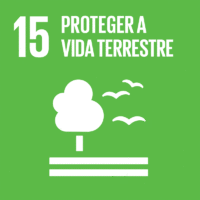Ciência_Iscte
Publicações
Descrição Detalhada da Publicação
A socio-technical approach to the assessment of sustainable tourism: adding value with a comprehensive process-oriented framework
Título Revista
Journal of Cleaner Production
Ano (publicação definitiva)
2019
Língua
Inglês
País
Reino Unido
Mais Informação
Web of Science®
Scopus
Google Scholar
Esta publicação não está indexada no Overton
Abstract/Resumo
Despite the increasing interest in sustainable tourism (ST), the actual implementation of sustainability practices within the tourism sector remains sporadic. Performance evaluation has emerged as a viable solution for this problem, but no universal ST assessment model has yet been developed for this purpose. Various authors have proposed different approaches, but these still exhibit limitations, especially regarding criteria selection and weighting. This study sought to create an assessment system for ST by combining cognitive mapping and the Choquet integral (CI), providing a rational, transparent foundation for the selection and weighting of evaluation criteria. The development of the proposed assessment system involved group meetings with a panel of ST experts, as well as a final validation session with a senior representative of the Portuguese Tourism Confederation. The results of a practical application of the system developed show that its process-oriented nature facilitates the ranking of tourism regions according to their degree of sustainability (i.e., Lisbon and Tagus Valley is the Portuguese tourism region with the most ST, whereas Alentejo comes last compared to the other alternatives). No prior research was found that has applied cognitive mapping and the CI in this study context, and new insights into ST can be obtained through an analysis of the cause-and-effect relationships between evaluation criteria. The contributions and implications of the proposed system are also discussed.
Agradecimentos/Acknowledgements
--
Palavras-chave
Tourism,Sustainability,Sustainable tourism,Cognitive mapping,Choquet integral
Classificação Fields of Science and Technology
- Economia e Gestão - Ciências Sociais
Contribuições para os Objetivos do Desenvolvimento Sustentável das Nações Unidas
Com o objetivo de aumentar a investigação direcionada para o cumprimento dos Objetivos do Desenvolvimento Sustentável para 2030 das Nações Unidas, é disponibilizada no Ciência_Iscte a possibilidade de associação, quando aplicável, dos artigos científicos aos Objetivos do Desenvolvimento Sustentável. Estes são os Objetivos do Desenvolvimento Sustentável identificados pelo(s) autor(es) para esta publicação. Para uma informação detalhada dos Objetivos do Desenvolvimento Sustentável, clique aqui.

 English
English



